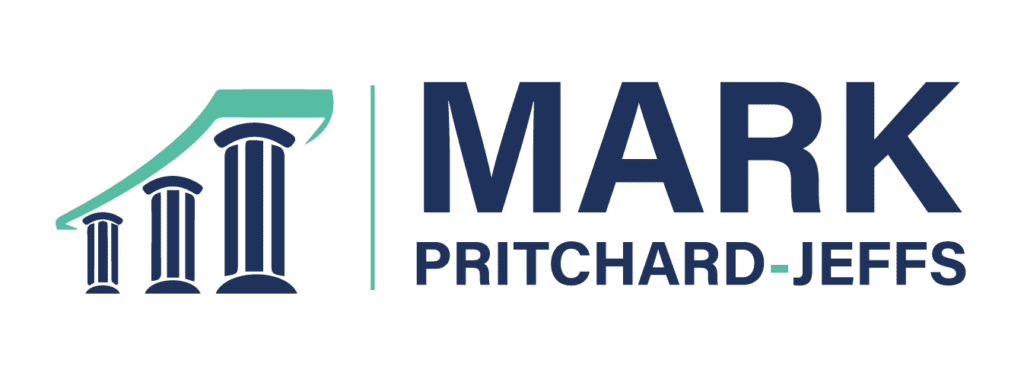This series of posts is aimed at Financial Advisers and Financial Planners wanting to understand how and why I believe they can attract more and better clients, add more value in their preferred market niche AND enjoy a more rewarding and fulfilling career in the process – by training to become a Wealth Manager.

Hybrid Service Propositions
Although it is helpful to define specific roles, it is overly simplistic to think of the market for financial services being split as neatly as I’ve described above. My experience suggests that many financial services providers actually offer some form of “hybrid” service proposition, comprising some or all of the elements from two or more of the main roles described. The most common “hybrid” service propositions that I come across are reviewed below.
Hybrid Financial Advisers
The most common hybrid service providers I come across style themselves as Financial Advisers first and foremost, but actually provide a financial planning service (albeit limited to informing the initial advice stage and/or the periodic review of any FCA-regulated financial products and related transactions that they hold under their paid servicing agency. The planning services provided are typically themed or project-based rather than holistic and process-based and they are usually designed to help both client and adviser understand the context within which a specific product-based recommendation or transaction-based problem and solution sits.

Such a financial planning service has the spin-off benefit of providing the hybrid Financial Adviser with a robust, structured and logical basis for fulfilling their statutory obligation to prove they “Know Their Client” and for evidencing the “Suitability” of any advice and service they are providing when they set up regulated financial products and arrange related financial transactions for their clients.
This sort of transaction-based financial planning service may be offered at the Initial Advice stage and/or (less commonly) whenever the performance, suitability and administration of previously recommended products and transactions are reviewed under an Ongoing Advice contract.
Hybrid Financial Advisers are an excellent option for potential clients who know with a high degree of certainty that they’ll be heavily reliant on financial products to meet their goals and objectives, as the financial planning process gives them more strategic feedback regards the likely impact and benefits that using a recommended financial product could have on their overall personal and financial future. This type of hybrid service proposition also suits clients who are already heavily invested in (and dependent upon) financial products.
However, bear in mind that such a hybrid service will not generally best serve clients whose wealth management is not heavily reliant on financial products and services and/or who face significant challenges and opportunities that cannot be addressed by such products.
You can usually determine whether they are dealing with a hybrid Financial Adviser by reviewing their Terms of Business and Client Service Charter. If they only charge fees through the financial products they arrange, then potential clients can be fairly sure that any financial planning service fits into this hybrid Financial Adviser category.
Lifestyle Financial Planners
Some Financial Planners (predominantly those qualified as Chartered Financial Planners) offer a professional financial planning and review service as their primary client service proposition, backed up by their own in-house Financial Advice service.

Most commonly styling themselves as Lifestyle Financial Planners, they’ll often be focused on serving similar target markets to hybrid Financial Advisers (80% or more of their work is likely to be transaction-related), but they also offer clients the option to pay for a financial planning service through a one-off fee or periodic retainer – especially when regulated financial products and related transactions are not expected to be central to the client’s strategy for achieving their lifestyle goals.
The scope of a typical Lifestyle Financial Planning service extends beyond the scope of a typical hybrid Financial Adviser’s financial planning service, to encompass the wider and non-transactional elements of life and lifestyle planning, budgeting and financial control, cashflow and liquidity management, career and business development, retirement and business exit/succession planning – plus non-transactional contingency and estate planning in the event of ill-health or premature death.
The cost of using an in-house Financial Advice service is often slightly lower than the cost of using equivalent services offered by a specialist Financial Adviser or hybrid Financial Adviser, reflecting the fact that fees paid for the Lifestyle Financial Planning process are likely to reduce the administrative overhead of providing FCA-regulated advice and related transactional services.
Their Terms of Business or Client Service Charter will let you know if their service proposition falls into this hybrid category.
Wealth Management Programme Directors
Chartered Financial Planners are increasingly seeking to transform their career prospects by training as Wealth Management Coaches. These specialist financial service providers are trained to market and deliver a comprehensive, relationship-driven, and coaching-based financial planning and wealth management service, typically on a fee or subscription basis backed by an in-house financial planning and complementary in-house product-based transactional advice, implementation and management services. Often they will train as Hereditas-licenced Legacy Planning Practitioners and Hereditas-accredited Wealth Management Programme Directors in the process.
The Wealth Management Coach role subjugates the roles of Financial Planner and Financial Adviser (which may be provided in-house or by external third-party professional service providers) to the role of Wealth Management Programme Director, delivering a comprehensive “Life & Legacy” wealth management service under a holistic Wealth Management Programme agenda following a simple Relationships-under-Management model:

This hybrid business model is well-placed to cater to the needs of successful business owner-managers, entrepreneurs, and other wealth creators and their families who face similar wealth management challenges to those addressed by a typical Family Office arrangement, but where the family members or otherwise related groups of stakeholders do not require such a complex and expensive solution. Basically, a Wealth Management Programme provider is an ideal choice for any potential client seeking the life and legacy-related benefits of a Family Office (see earlier section), but at a fraction of the cost.
Wealth Management Programme Directors guide and encourage clients to define and communicate their highest values, priorities and goals, and help them implement and review key plans and strategies. They help select, manage and coordinate a Wealth Management Team that includes personal representatives, professional service providers, potential beneficiaries, and any other key stakeholders, ensuring everyone is working towards a shared vison whilst maintaining family/group unity and harmony and optimising the prospect of positive outcomes for all involved.
Hybrid Wealth Management Coaches typically oversee collaboration with specialists such as accountants, lawyers, tax advisers, private bankers, corporate financiers, and business advisers, but provide Financial Advice and Financial Planning services in-house:
The primary responsibilities of a Wealth Management Programme Director include facilitating key financial, lifestyle, legacy, estate and contingency planning processes, managing relationships between clients and members of the wealth management team, helping clients implement financial plans and strategies that are aligned with their vision and values, and regularly reviewing and updating plans and strategies as circumstances change. They act as project managers, coordinating the various contributors to the wealth management process. This approach provides a comprehensive wealth management experience, focusing on multi-generational and multi-stakeholders.
An effective Wealth Management Programme delivered by a competent Wealth Management Programme Director will help their clients maintain family unity and optimise the benefits of shared wealth for all nominated stakeholders, present and future following a Relationships-under-Management model. A compelling vision will guide and inform all key aspects of wealth management will including day-to-day lifestyle-based financial management plus long-term Life, Legacy, Contingency & Estate planning and management. It’s a structured process based on a clear vision and agenda that covers the creation, management, and enjoyment of wealth in all its forms and the transition and protection of that wealth across multiple generations of a family (or otherwise connected group of stakeholders such as business partners) delivering solutions proactively and reactively on a sustainable basis.
In Summary
Wealth Management Programmes are overseen by a Wealth Management Programme Directors for the benefit of a group of related stakeholders (families, business partners etc) under a shared vision and agenda. In this sense, the wealth manager acts as a project manager, planning and overseeing the collaboration of the many and varied contributors to (and benefactors of) the wealth management process, much like a conductor directs and manages the many and varied instruments and voices in an orchestra in accordance with the composers vision (analogous to the sheet music!). They provide the most comprehensive wealth management experience outside of a Family Office, one that includes all keys aspects of the roles and services provided by a Financial Adviser, Financial Planner and Wealth Manager.



